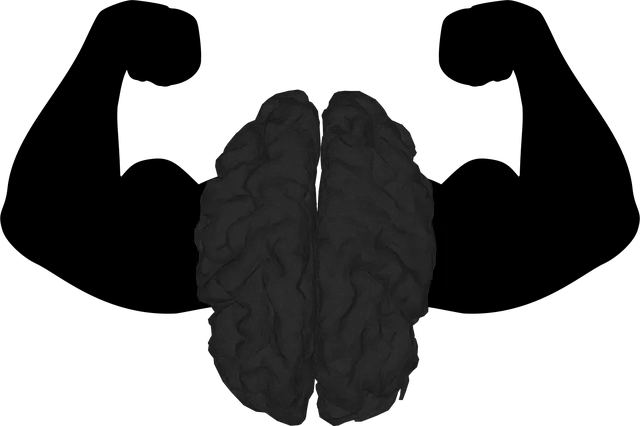The Kaiser Permanente behavioral health center Lone Tree is at the forefront of mental wellness care, providing accessible self-assessment tools that encourage individuals to proactively manage their emotional well-being. Through a holistic approach integrating trauma support, stress reduction methods, technology, and public awareness campaigns, the center promotes cultural sensitivity and empowers community members to take charge of their mental health. Their innovative practices, including mindfulness meditation and technology integration, have led to effective self-assessment tools that enhance emotional intelligence and overall well-being.
Mental wellness self-assessment tools are crucial for early detection and management of behavioral health issues. This article explores the development of such tools, focusing on the innovative practices at Kaiser Permanente’s Lone Tree center, a renowned behavioral health hub. We’ll delve into defining comprehensive assessment frameworks, integrating technology for accurate monitoring, and effective testing strategies. By examining these approaches, we aim to enhance mental health support, making it more accessible through digital solutions, particularly highlighting the model established by Kaiser Permanente Lone Tree.
- Understanding the Need for Self-Assessment Tools in Behavioral Health
- Kaiser Permanente Lone Tree: A Center for Excellence in Mental Wellness
- Defining Key Components of a Comprehensive Self-Assessment Framework
- Integrating Technology for Accurate and Accessible Mental Health Monitoring
- Testing, Implementation, and Continuous Improvement Strategies
Understanding the Need for Self-Assessment Tools in Behavioral Health

In today’s fast-paced world, prioritizing mental wellness is more crucial than ever. Organizations like Kaiser Permanente behavioral health center Lone Tree recognize the growing demand for accessible and effective self-assessment tools to support individuals in their journey towards better mental health. These tools play a pivotal role in empowering people to take an active role in understanding their emotional well-being. By providing a means to assess and track one’s mental state, Self-Care Routine Development for Better Mental Health becomes more attainable.
Trauma Support Services and Stress Reduction Methods are integral components that these self-assessment tools address. They help individuals identify potential triggers, manage stress, and process traumatic experiences. Through such initiatives, Kaiser Permanente Lone Tree aims to foster a holistic approach to behavioral health, encouraging folks to proactively develop and maintain resilient Self-Care Routines.
Kaiser Permanente Lone Tree: A Center for Excellence in Mental Wellness

Kaiser Permanente Lone Tree stands as a beacon of hope and excellence in the realm of mental wellness. This behavioral health center is dedicated to transforming lives by providing comprehensive care tailored to individual needs. With a team of expert professionals, it offers a wide array of services designed to address various mental health concerns, from therapy sessions to innovative treatment programs. The center’s strategic location in Lone Tree positions it at the heart of a community striving for improved mental wellness.
Beyond its clinical offerings, Kaiser Permanente Lone Tree actively contributes to public awareness campaigns development and healthcare provider cultural competency training. By fostering an environment that prioritizes open dialogue about mental health, the center ensures that individuals from diverse backgrounds receive respectful, culturally sensitive care. This holistic approach underscores the facility’s commitment to enhancing mental wellness not just within its walls but throughout the community it serves.
Defining Key Components of a Comprehensive Self-Assessment Framework

A comprehensive self-assessment framework for mental wellness should incorporate various key components to ensure a holistic evaluation. This includes addressing emotional intelligence, which involves understanding and managing one’s emotions, both personally and in interpersonal interactions. Enhancing emotional intelligence can significantly impact an individual’s overall well-being, especially when coupled with practices like mindfulness meditation, as promoted by the Kaiser Permanente behavioral health center Lone Tree.
Additionally, a robust self-assessment should consider public awareness campaigns development as a vital tool for fostering open conversations about mental health. By integrating these aspects, individuals can gain deeper insights into their emotional states, cultivate better coping mechanisms, and proactively engage in maintaining or improving their mental wellness.
Integrating Technology for Accurate and Accessible Mental Health Monitoring

Integrating technology has revolutionized mental health monitoring, offering accurate and accessible tools for individuals seeking support. The Kaiser Permanente behavioral health center in Lone Tree is a prime example, utilizing digital platforms to enhance patient care. By developing innovative self-assessment tools, they ensure that mental wellness tracking becomes more convenient and effective. These tools often include interactive features, providing users with personalized feedback and guidance tailored to their unique needs.
This approach not only improves public awareness campaigns related to mental health but also facilitates proactive stress management. Additionally, the integration of technology enables the creation of comprehensive Mental Wellness Coaching Programs Development, allowing individuals to take control of their well-being. With accessible digital resources, more people can now receive timely support and guidance, fostering a culture of open dialogue around mental wellness.
Testing, Implementation, and Continuous Improvement Strategies

Testing, implementation, and continuous improvement are pivotal components of developing effective mental wellness self-assessment tools, as exemplified by the innovative practices at the Kaiser Permanente behavioral health center in Lone Tree. Rigorous testing ensures that the assessments accurately measure mental health indicators and provide valuable insights for personalized interventions. This involves piloting the tools with a diverse group of users to gather feedback, refine questions, and ensure cultural sensitivity.
Once validated, these self-assessment tools are seamlessly integrated into healthcare practices, such as Burnout Prevention Strategies for Healthcare Providers and Mental Health Education Programs Design. Regular evaluation and gathering of user data enable continuous improvement, allowing the tools to adapt to evolving mental health needs and research findings. This iterative process ensures that the assessments remain relevant, reliable, and impactful in promoting mental wellness among healthcare providers and other beneficiaries at the Kaiser Permanente behavioral health center Lone Tree and beyond.
The development of mental wellness self-assessment tools is a vital step forward in addressing the growing need for accessible and personalized behavioral health support. By combining insights from Kaiser Permanente Lone Tree, a renowned center for excellence in mental wellness, with comprehensive assessment frameworks, we can create powerful resources. Integrating technology ensures accurate monitoring while making these tools widely available. As discussed, testing, implementation, and continuous improvement are key to refining these methods, ultimately enhancing the well-being of individuals seeking behavioral health support at a center like Kaiser Permanente Lone Tree.






